Harvest in Kościelniki district in Poland © Wikicommons/Jacek Halicki
It was US President Dwight D. Eisenhower who once said: “Farming looks mighty easy when your plough is a pencil, and you’re a thousand miles from the cornfield.” In other words, thought doesn’t make crops grow and making plans isn’t such hard work as getting down on the soil and getting your hands dirty. However, with thoroughly dishonest thought and illicit planning, you reap far more than you ever planned to plant, assuming you plant anything at all. The European Union pays out somewhere in the region of €54-billion in subsidies each year through its Common Agricultural Policy (CAP) to support farmers and to help rural communities. But wherever there is a big enough honeypot, of course, the flies and the wasps will gather, and they do. It’s not just organised crime, either; politicians have been siphoning off the funds to reward their friends, boost their electoral chances and punish their critics. The problem is that the member states have opted for a secretive approach to the distribution of the funds, which has empowered the same antidemocratic forces that are a threat to the EU’s future. As the New York Times put it in 2019: “across Hungary and much of Central and Eastern Europe, the bulk (of the money) goes to a connected and powerful few. The prime minister of the Czech Republic collected tens of millions of dollars in subsidies just last year. Subsidies have underwritten Mafia-style land grabs in Slovakia and Bulgaria.”
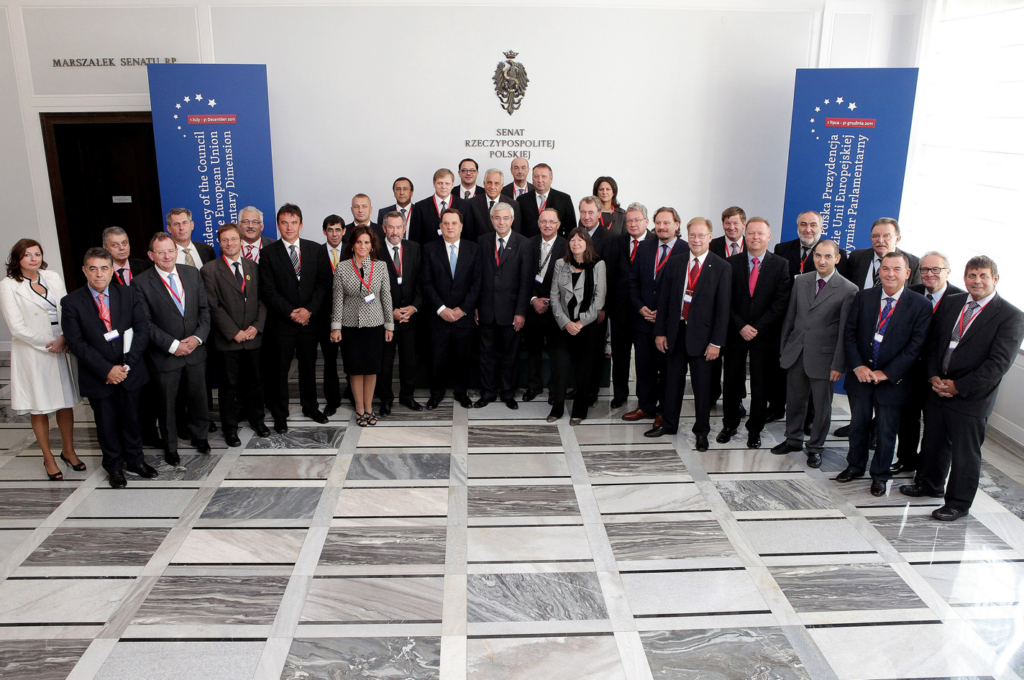
That’s the trouble with populists and oligarchs: they don’t just steal, they undermine the entire Union and they don’t care. The NYT’s survey was unsparing of the people involved in this misuse of funds and of power. Take Hungary, for instance: “Mr. Orbán’s government has auctioned off thousands of acres of state land to his family members and close associates, including one childhood friend who has become one of the richest men in the country, the (New York) Times investigation found. Those who control the land, in turn, qualify for millions in subsidies from the European Union.” Jozsef Angyan, who was at one time Orbán’s Under-Secretary for Rural Development, described the subsidy scheme: “It’s an absolutely corrupt system,” he told the NYT. According to Britain’s Independent news website, “Europe’s machinery in Brussels enables this rough-hewed corruption because confronting it would mean changing a programme that helps hold a precarious union together. European leaders disagree about many things, but they all count on generous subsidies and wide discretion in spending them.”
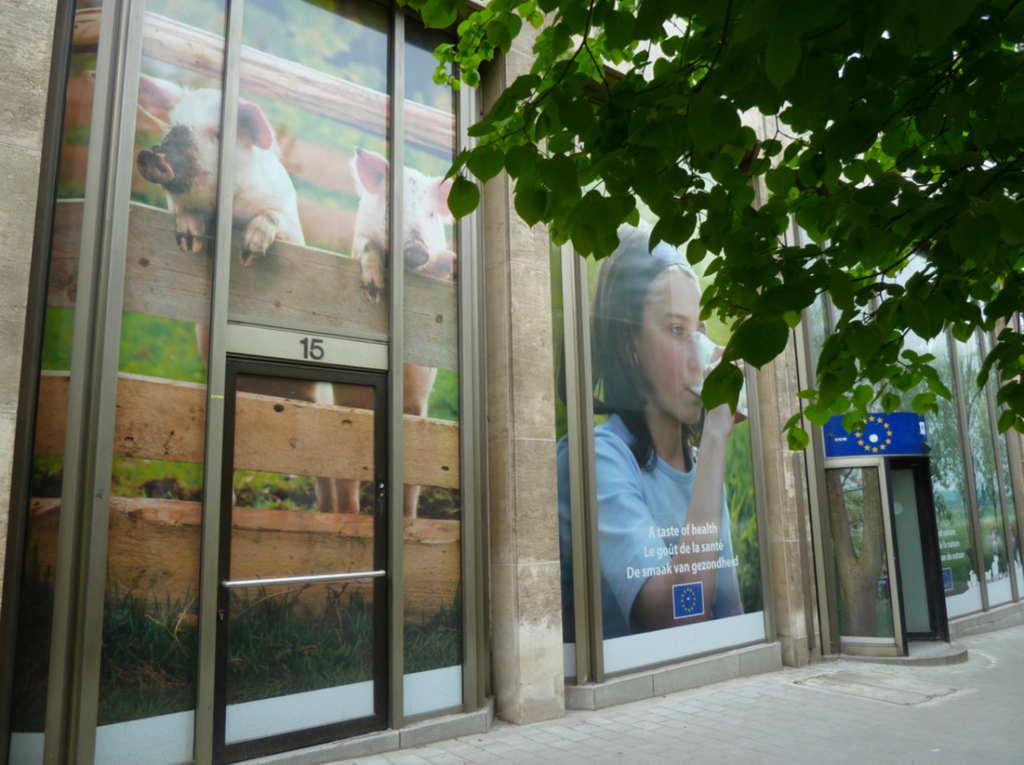
The damning verdict is reflected by France 24, too: “Nearly 40 percent of the EU’s budget ends up in farms,” says its website in a promotion for a studio debate, “through the Common Agricultural Policy (CAP), which funds tens of billions of euros in subsidies. But now, the Commission is proposing new strategies to make farming more sustainable as part of its Green New Deal.” That, at least, is the stated aim of the European Commission: “The EU will be climate neutral by 2050,” it claims. “To do this, it will carry out a series of initiatives that will protect the environment and boost the green economy.” Certainly, there are signs that its existing system of handouts, quite apart from enriching oligarchs and crooks, is helping to drive climate change. To be honest, it’s not just the EU, either. Worldwide, agricultural subsidies come to $700-billion (€580-billion) a year. Much of that money, according to an on-line article on the One Earth/Cell Press website, is funding income inequality in agriculture and very little of it has been going to climate-friendly and biodiverse regions. The article points out that “More than €24-billion of 2015 CAP direct payments went to regions where average farm incomes are already above the EU median income. A further €2.5 billion in rural development payments went to primarily urban areas. Effective monitoring indicators are also missing.” Of the €54-billion handed out in CAP payments, the One Earth report estimates that €26-billion – not far short of 50% – was misspent. In fact, some 80% of the money given out in the CAP goes to just 20% of Europe’s farmers.
ONLY THE RICH CAN PLANT MONEY TREES
A new survey into the CAP and its misspent funds makes disturbing reading. “The new data show that most income support payments go to intensively farmed regions already above median EU income, while climate-friendly and biodiverse farming regions, as well as poorer regions, are insufficiently funded. Consequently, the majority of payments are going to the regions causing the most environmental damage and the farmers in the least need of income support.” In fact, quite a lot of the funding is going to urban areas and not to farms at all. “By revealing the extreme concentration of payments to relatively wealthy regions, we hope this study can catalyse radical change in the distribution of CAP funding towards needs-based income support and sustainable development,” said Mark Brady, an economist from the Swedish University of Agricultural Sciences and Lund University, who was involved in the research. The study was published by One Earth and it should make worrying reading for EU policy-makers. “Right now, the farming regions with the highest greenhouse gas emissions from intensive livestock production are getting paid to pollute. Farm payments should be needs- and results-based to ensure social and environmental benefits,” concluded one of the researchers, Kimberly Nicholas. “The EU has an obligation to harmonize reporting of CAP spending data, tracked using more relevant indicators, to ensure public spending actually provides public benefits.”

In the European Parliament, the Greens/EFA group have produced their own report, under the title “Where does the EU money go?” It formed the basis of an article in EU Reporter, an on-line political magazine: “The report outlines up-to-date cases, including: Fraudulent claims and payments of EU agricultural subsidies in Slovakia; the conflicts of interest around the Czech Prime Minister’s Agrofert company in Czechia; and state interference by the Fidesz government in Hungary. This report comes out as the EU institutions are in the process of negotiating the Common Agricultural Policy for the years 2021-27.” The article includes a quote from Viola von Cramon, a Greens/EFA MEP and member of the Budgetary Control Committee: “The evidence shows that EU agricultural funds are fuelling fraud, corruption and the rise of rich businessmen.
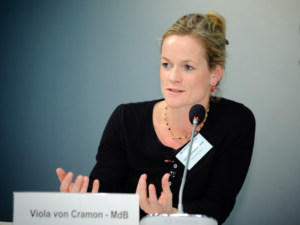

Despite numerous investigations, scandals and protests, the Commission seems to be turning a blind eye to the rampant abuse of taxpayer’s money and member states are doing little to address systematic issues. The Common Agricultural Policy simply isn’t working.” We can hardly be surprised that member state government are not policing the CAP properly if some of them are creaming off the profit for their personal benefit. That concern is voiced in the article by Mikuláš Peksa, a Czech biophysicist and Pirate Party MEP who is also a Greens/EFA Member of the Budgetary Control Committee, who said: “We have seen in my own country how EU agricultural funds are enriching an entire class of people all the way up to the Prime Minister. There is a systemic lack of transparency in the CAP, both during and after the distribution process.”
On the plus side, despite the vast sums distributed supposedly to aid farmers and agricultural workers to produce healthy food whilst earning an honest living, the cost to EU citizens is low: just €0.30 per day. If you lost 30 eurocents down the back of the sofa you probably wouldn’t even bother to look for it. Meanwhile, the European Commission does what it can to keep everything legal and above board. “The Commission works with the certification bodies to ensure that CAP expenditure is implemented in full accordance with the applicable EU and national rules,” says its website. “It audits their work to confirm that management and control systems in the respective EU countries are functioning properly. If potential irregularities in expenditure are detected, the Commission covers the risk of financial losses to the EU budget by applying financial corrections under the conformity clearance mechanism.” It all sounds very promising, doesn’t it? The Pirate Party, a political party allied to the Greens/EFA in the European Parliament, have produced a report of their own that suggests the Commission is not keeping such a tight lid on fraud and corruption as its own website suggests. “The Commission is supposed to be guardian of the treaties, but it is refusing to take proper action against fraud, corruption and misuse in EU agricultural funds. Transparency, accountability and proper scrutiny are essential to building an agricultural system that works for all, instead of enriching a select few.” The report, published in February this year, suggests that the various reforms announced have not had the intended affect. “The report’s main findings reveal a system that is more and more based on cash crops,” it says. “As funds are based on the size of the land, incentives are given for higher land and capital concentration and agricultural production. As a result, small family farms are the beneficiaries of only a small proportion of the EU support, whereas bigger agro-conglomerates and bigger companies are receiving the overwhelming majority of CAP funds.”
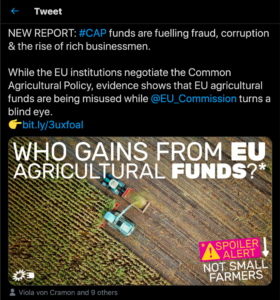
The report is mainly concerned with the distribution of Common Agricultural Policy funds in Central and Eastern Europe and gives a handy country-by-country breakdown. In Bulgaria, for instance, it states that following the fall of Communism in 1989, the return of land to its former owners was slow. In fact, it took nine years to complete, and it resulted in some of the new tenants buying up tens of thousands of hectares of fertile soil. The largest share, however, is divided among a large number of small owners, many of them urban dwellers incapable of organising large scale agricultural production, as a result of which a large proportion of it is cultivated not by small land-owners but by large arendatori, land tenants, whose enormous farms have badly affected small farmers and other rural communities. The report claims that the CAP encourages cash crops such as wheat, maize and sunflowers, replacing the vegetables for which the country had once been famous. That, in turn, reduced the demand for labour, leading to unemployment and migration to the towns.
THE LAND OF LOST CONTENT
With more than 5 million hectares under cultivation, cash crops now cover 80% of the land in Bulgaria. According to the EU statistical office Eurostat, 48.6% of the country’s land is being cultivated by farm owners with an annual turnover of €500,000. Hardly what you would call ‘small farmers’, then. The report goes on to mention a number of investigative journalists, NGOs and academic researchers in Bulgaria, who made a link between the ‘land oligarchy’ and the skewed distribution of EU agricultural subsidies. “ERI 2016 (the thematic report of the Economic Research Institute) pointed out that the final beneficiaries of the lion’s share of the EU AGRI funds in Bulgaria amount to approximately 100 individuals. This number may be tentative and yet it is beyond doubt that some of the richest people in the country are being subsidised via the CAP with millions of euro on an annual basis. This complementary financial flow cements their economic power and enhances their political influence. There are indications that public institutions and agencies secure political and legal comfort for the biggest players.”
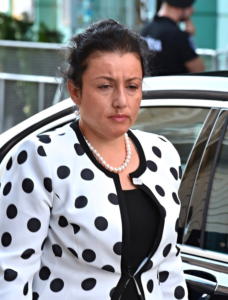
In fact, the report finds a lot wrong with the administration of EU agricultural funds in Bulgaria, concluding that: “The system administering EU AGRI funds in Bulgaria displays many unfavourable features, including obstructed flow of information, lack of focused support for small farmers, numerous loopholes for evading the capping of direct payments and providing the biggest players with a comfortable administrative and legal regard.” But it would be wrong to single out Bulgaria for criticism; similar problems exist in the Czech Republic, Hungary, Slovakia and Romania.
Let’s look at Hungary. After Communist rule ended, land was very cheap and a number of foreign investors tried to purchase it. To prevent a land rush, the government of the time introduced a ban on foreign ownership. But laws like that are made to be broken and cunning lawyers soon found ways to bypass the regulations. The report explains how: “To evade this regulation, so-called pocket contracts became widespread, which meant that the land was formally rented from the new Hungarian owners who did not wish to cultivate it, but this was supplemented by an undisclosed, unregistered (‘pocket’) agreement that the land would be transferred to the tenant after the end of the ban.” Three types of players were then engaged in farming in Hungary: corporations and large companies, co-operatives and individual farmers. With the liquidation of Communist-style co-operatives, there began a concentration of property ownership. In the most infamous case, the Fidesz government of 1998-2002 sold twelve state-owned farming companies, some of them formerly flagships of the old Socalist economy, to ‘politically connected’ buyers, circumventing the provisions of the Privatisation Act. The twelve farms became known as ‘the dirty dozen’. As a result of these dubious practices, there was little change in the concentration of land ownership and local small-scale and medium-scale farmers are still unable to acquire land. As a result, the report concludes, 2.5% of Hungary’s farmers use two thirds of the country’s arable land.
Needless to say, the accusations made in the Greens/EFA report have been robustly condemned by Hungary’s agriculture ministry.
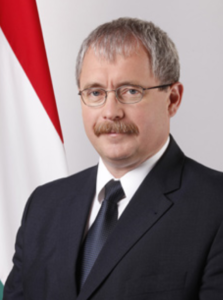
It called the report a “tsunami of lies” with a “complete disregard for the facts”. Euractiv.com reported a statement by the ministry refuting all the allegations of wrongdoing. “Hungary has one of the most stringent and sophisticated monitoring systems in relation to the disbursement of agricultural subsidies,” the statement claimed, “which is not only subject to strict accreditation but is also regularly reviewed by the European Commission and the European Court of Auditors.” This met with a hostile response, of course, from the Greens/EFA, Euractv.com reports: “In response to the rebuttal, Green MEP Viola von Cramon, a member of the budgetary control committee, told EURACTIV that the government’s statement ‘does not contradict a single sentence from our study’. The majority of the CAP funds are getting into the hands of a very few people, and none of these facts were disproved by the Hungarian Ministry,” she said.
This comes at a time when Hungary’s Prime Minister, Viktor Orbán, has been using his large parliamentary majority to transfer as much as he can of the country’s infrastructure into the hands of his political allies, seemingly in a bid to cement his position in perpetuity. Even if he loses the next election, the incoming party will be unlikely to secure a sufficient majority to overturn his bid for very long-term (permanent?) control. As for farmers, the New York Times summed it up neatly. Under Communism, farmers toiled in their fields to grow wheat and corn for Socialism.
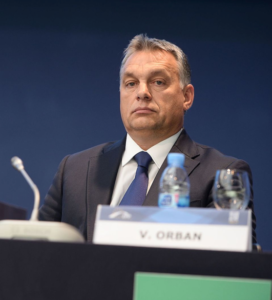
“Today, their children toil for new overlords, a group of oligarchs and political patrons who have annexed the land through opaque deals with the Hungarian government. They have created a modern twist on a feudal system, giving jobs and aid to the compliant, and punishing the mutinous.” Worst of all, says the NYT, “These land barons, as it turns out, are financed and emboldened by the European Union.” Across Hungary and much of Central and Eastern Europe, most of the funds from the Common Agricultural Policy go to the well-connected and powerful few. “The prime minister of the Czech Republic collected tens of millions of dollars in subsidies just last year,” the paper says. “Subsidies have underwritten Mafia-style land grabs in Slovakia and Bulgaria.” Nothing in those countries will be able to return to what it once was before a World War and a lengthy period of Communist rule. As the poet A.E. Housman wrote about the far-off past that he recalled: “That is the land of lost content / I see it shining plain, / The happy highways where I went / And cannot come again.” It will take more than EU subsidies to put that right, although it’s unlikely that the dreamed-of past was quite as jolly as you (or A.E. Housman)recall.
CLEVER CROOKS; COMPLEX CRIMES
There have been other forms of fraud regarding agriculture; the criminal mind is always inventive. Take Slovakia, for instance, where fraud was detected at the country’s agricultural paying agency, PPA, which doles out the EU funds among its beneficiaries. Of 110 cases involving €47-million that were checked by the accountancy firm PwC, 60% of them showed signs of fraud. The findings were announced at a press conference by a PwC spokesperson and Slovakia’s Rural Development Minister, Ján Mičovský. Favoured consultants had been paid enormous fees, well above the normal rates, while the financial health of companies benefiting from the payments had been falsely stated, among a number of fraudulent actions. In one case, the purchase price of a combine harvester, which in reality had cost €250,000, had been falsely recorded as €600,000, according to the Ministry’s State Secretary, Martin Fecko. The findings so far suggest that the irregularities began back in 2006 when Juraj Kožuch led the PPA. He is now under investigation. The PPA itself has come in for heavy criticism for alleged fraud in its handling of the EU’s CAP funds.
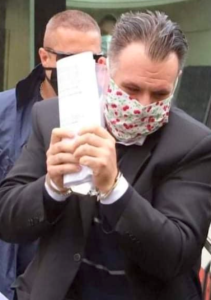
However, in a list of countries in which fraud has been perpetrated against the EU budget, Hungary comes way out in front. The EU anti-fraud office is known as OLAF, which stands for Office européen de lutte antifraud (European office for the fight against fraud). In the annual report published in autumn 2020, by far the greatest share of the irregularities it had uncovered for the period 2015 to 2019 were in Hungary. OLAF carried out 235 investigations into the misuse of both European CAP payments and those under the European Structural Funds and it recommended that the European Commission should recover 0.36% of total funding across all member states due to fraud. However, many EU countries got a totally clean bill of health. Hungary was completely off the scale, with a recommended recovery rate of 3.93%. Compare that with the next highest, Slovakia, where the recommended recovery rate was 0.53%. Next came Portugal with 0.44%, then Germany with 0.38%, right the way down to France at 0.02%, Latvia and Spain with 0.01%, while in Cyprus, Denmark, Estonia, Finland, Ireland, Luxembourg, Malta and Sweden no recoveries were recommended. Hungary saw 43 investigations by OLAF into funding misuse. The current Hungarian government laid the blame on the policies of the preceding Socialist government.
OLAF has reported that its investigations have been getting more complicated in recent years, largely because individual cases are no longer restricted to one region or even one country. Instead, they stretch across borders, sometimes into third countries. “Organised criminals defraud EU funds and abuse EU and national rules by hiding their tracks and activities around Europe,” according to OLAF’s 2018 annual report. Their methods make for interesting reading, too. “They skilfully exploit every possibility to try to appropriate EU funds by manipulating procurement procedures, receiving agricultural grants for plots of land they did not farm, or misdeclaring imports to avoid paying customs fees.” The Common Agricultural Policy, as the largest cash chest to which the EU holds the key, is a particular target. Italy also came to OLAF’s attention with what became known as the “false farmers” case, in which fraudsters submitted aid applications under the names of people who had died, with false lease contracts and by using land that was ineligible for agricultural subsidies. OLAF worked in conjunction with Italian law enforcement agencies and together they uncovered a wide-ranging fraud scheme with possible links to the Mafia. OLAF also found that the same “false farmers” fraud had been used in other countries, too.
WELCOME TO MY CLIFF
France, too, was the setting for a fraudulent attempt to obtain EU funds illegally. “OLAF investigators discovered claims for EU support for large and remote plots of land that were not actually farmed,” said the report, “claims for plots of land belonging to other individuals who had not granted appropriate permission, the so-called ‘agro-pirate’ cases, or for “ghost-herds”, which are animals that were never properly identified and unlikely to exist.

OLAF also uncovered claims for EU support for plots of land where no entitlements for farming could be provided by the beneficiary or simply claims for plots that were not even farmed.” The ingenuity of the fraudsters is startling. In one case in Corsica, a hairdresser made a claim for land on which he or she wanted to graze animals. Upon investigation, it turned out to be a vertical cliff upon which grazing would have been impossible, even for mountain goats. It wasn’t the only such incident. “In the course of one investigation, OLAF discovered that claims were submitted for several years in Corsica for parcels of land in mountainous areas without any suitable infrastructure that would allow for farming, such as access track, water supply, corrals or feeding facilities. Fraudsters also submitted applications for parcels of land despite the fierce opposition of the legitimate owners, or for herds which were not properly tagged or even non-existent.”
Italy doesn’t get off Scot-free, either. The Mafia has been doing very well out of the Union’s largesse in the countryside over an extended period. From 2010 to 2017, for instance, €10-million from EU funds went to 151 farms owned by the Nebrodi family in Sicily, in this case from the European Agricultural Fund for Rural Development (EAFRD). Overall, the fraud involved the theft of €55-billion from the EU. The fraud is so serious (and was so prolonged) that it damaged Italy’s rural economy. The suspected perpetrators were arrested, however, and 94 members of various Mafia clans went on trial. According to the ‘factcheck.eu’ website, each of the suspects had a very specific task, such as finding a field to acquire, ‘persuading’ farmers to get involved, supplying a figurehead for the purchase or renting of land, supplying forged documents and applying fraudulently for loans. Mafia efforts, the website claims, have helped ensure Italy’s agriculture remains backward whilst extracting money that could have helped legitimate farmers.
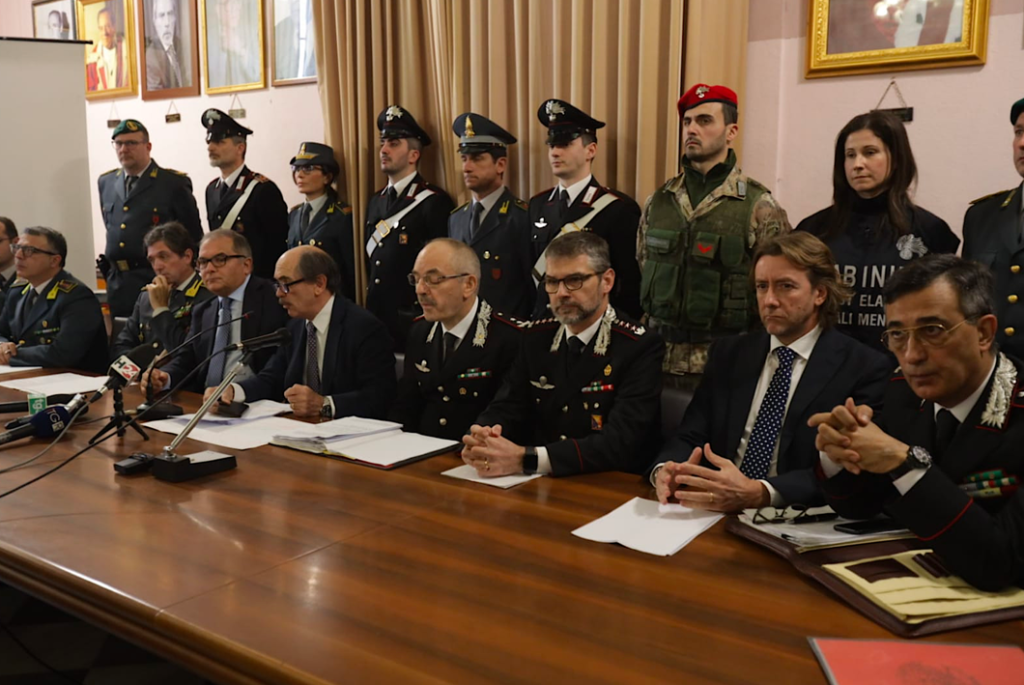
“Honest farmers have been forced to rent their lands out to local Mafia families,” said Vincenza Rando – lawyer and vice-president of Libera, an organisation that promotes the use of land and assets seized from the Mafia to set up local food cooperatives. “They are looking for land loans as they need more lands to get EU funds.” The loans were applied for and supplied through the EU’s legal system, meaning the money is clean and ‘legitimate’, even if acquired through fraud. It was industrial-scale fraud: one might imagine that such ingenuity and effort could have been applied to legitimate business and earned as much. Meanwhile, some 97 Mafia mobsters and their white-collared assistants are now on trial, accused of crimes ranging from fraud, giving false statements, extortion, creating fake companies for illegal gain, drug pushing and even stealing livestock. It involves 90 lawyers and 1,000 witnesses, according to Politico, and may take a year to complete. The investigating judge described the scam as “a colossal fraud, exploiting the EU funding on a huge scale and to perfection.” This is more than just a bit of fiddling to siphon off EU funds. “This is the major new development revealed in this trial: an integrated, organised system” of subsidy fraud, said Italian Senator, Mario Giarusso, long-term anti-Mafia campaigner, who sat in court as the trial began. If found guilty, the defendants face up to 25 years in prison.
The investigators put part of the blame on the complexity of the legislation, which confused the honest and proved to be a goldmine for criminals. There is an old saying: “Promises are like pie crusts; made to be broken”. The same is apparently true of laws. OLAF investigators noted an increase in cases in which several persons and organisations have worked together in order to gain access to EU funds. For instance, OLAF discovered that established agricultural operators in Bulgaria, who were past beneficiaries of EU agricultural funds, attempted to expand their operations and holdings by creating and using new, and seemingly independent, operators. The fraud occurs when an established known operator reaches the limit for the total eligible cost available for EU financial support for his holding or group of holdings. As a result, this operator cannot legitimately obtain further funding to expand his business. Instead, other “independent” entities, which are actually under the control of the initial operator, apply and obtain EU funds. Criminal gangs love the CAP.
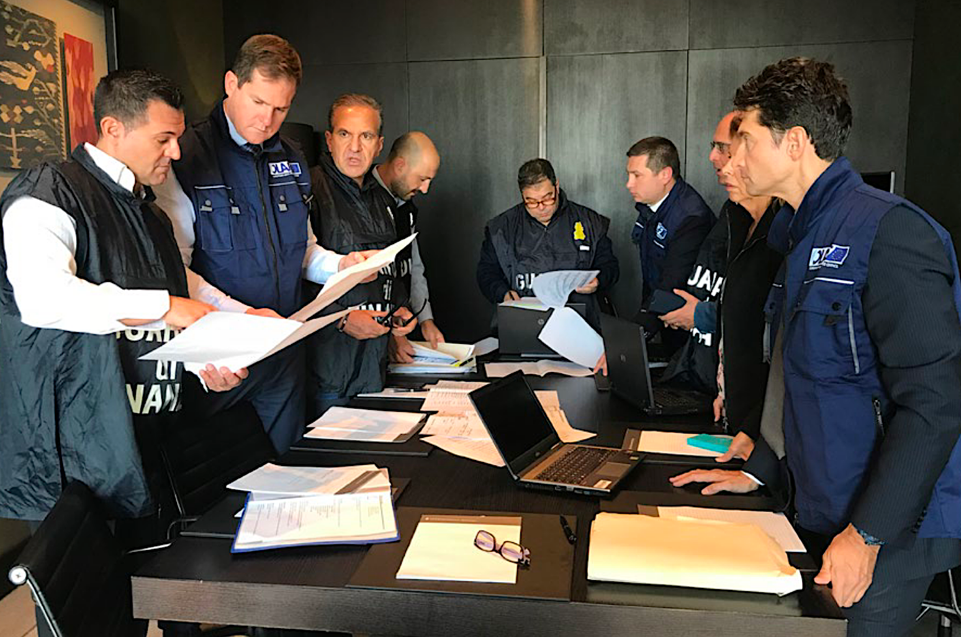
EU lawmakers are well aware of the shortcomings in the way the well-meaning Common Agricultural Policy was drafted. Now there are to be reforms, as the European Commission has explained: “On Friday 23 October 2020, the European Parliament adopted its final positions on the various parts of the European Commission’s 2018 legislative proposal for the CAP reform post-2020, namely: “Regulation establishing rules on CAP Strategic Plans,
horizontal regulation establishing rules on financing, management and monitoring the CAP and regulation establishing rules on Common Market Organisation for agricultural products.”
After two and a half years of negotiations on these three pieces of legislation, the EU Council also adopted its position on Wednesday 21 October 2020. However, the Commission’s good intentions were watered down by the centrist political groups in the European Parliament, working in concert for once, and by the European Council. The Commission had wanted a fairer distribution of CAP funds, more ambitious ‘green’ ambitions and a new delivery model. Not anymore, it seems. As the Heinrich Böll Stiftung wrote in a critique of the long-awaited reforms:
“1. Any reform on the distribution of payments might be excluded: ie by removing any mandatory capping to payments or still leaving payments based on land and title ownership, rather than on social and environmental criteria.
2. The green ambition will strongly decrease: by diluting ‘environmental spending’ with interventions which do not prove to contribute positively to the environment; by excluding 40% of agricultural land subject to make space for nature; by excluding or postponing the mandatory support to ‘eco-schemes’.
3. Performance mechanisms are going be undermined: such as by excluding performance bonus, postponing the performance assessments, trying to reduce the number of target indicators subject to performance review, excluding impact indicators in the performance reviews.”
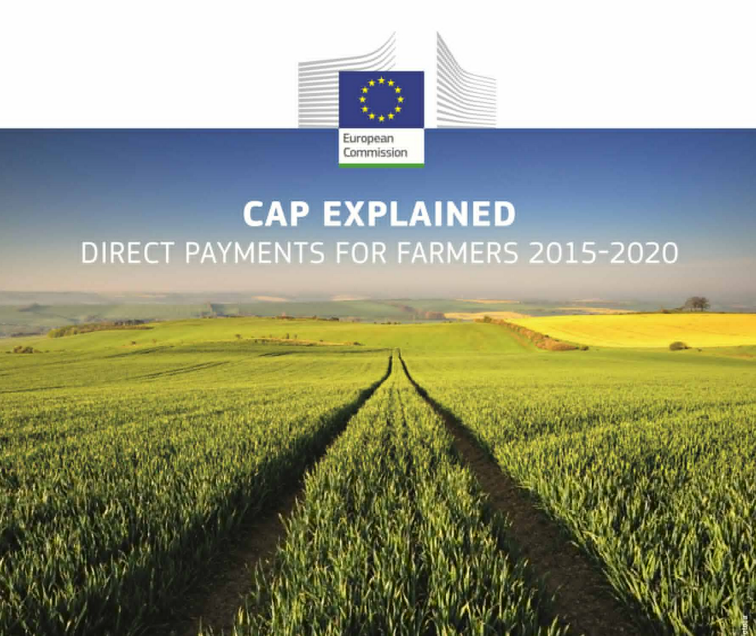
So, business as usual, then? Well, the Heinrich Böll Stiftung fears that the insistence of both the European Council and the European Parliament on a ‘laissez-faire’ CAP, is unlikely to meet the demands of the so-called ‘Green Deal’. Quite apart from the CAP’s virtual invitation to fraud, “In the European Union (EU), the Common Agricultural Policy (CAP) is failing with respect to biodiversity, climate, soil, land degradation as well as socio‐economic challenges,” says the Heinrich Böll Stiftung. There has been criticism, too, from the British Ecological Society (BES), although Britain is no longer part of the EU. “We call on the European Commission, Parliament, Council and Member States,” it reads, “to use the breadth of scientific knowledge and experiences from past CAP reforms for drastically improving the CAP in order to avoid a policy failure and further ineffective use of taxpayers’ money.” Among a range of proposals that are almost certain to be ignored, it wants the abolition of coupled payment systems for intensive production that results in high greenhouse gas emissions. With an eye to greenhouse gases again, it wants the CAP to focus more on improved nitrogen fertilizer applications. It wants more done to maintain biodiversity and address environmental challenges. It’s quite a list and it includes the sorts of measures the European Commission was hoping to introduce before the big groups in the European Parliament got in the way, together with the Council (member state ministers), preferring to retain the current “nothing-to-see-here, move on” approach. Still, there are real reforms, finally agreed by EU agriculture ministers in Luxembourg. As Deutsche Welle reported: “Under the new proposal, member states will have a greater level of freedom over how they achieve the agreed-upon goals regarding the conservation of nature, environmental protection and ensuring food quality.” It remains to be seen how this “greater level of freedom” will affect the greening of Europe, reducing greenhouse gas emissions and reducing damaging monocultures across Europe’s green and pleasant land. The countries will still have to get their plans approved by the European Commission, as well as coming up with new “eco-schemes” that go beyond the existing rules and carrying the possibility of more generous payments.
You will not be surprised that the Greens/EFA group in the European Parliament, who were not part of the agreed centrist group decision, are not happy with the outcome. “In 2021, in Europe,” they complain on their website, “there are still several cases where major beneficiaries of CAP funds actually decide how to allocate them – huge conflicts of interest. It is notably the case in Czech Republic and in Hungary, where, as outlined in a recent study commissioned by our group, CAP funds have fuelled anti-Semitic, xenophobic and anti-EU oligarch Viktor Orbán, who owns gigantic agro-industrial properties. A well implemented mandatory capping of direct payment, could at least limit their revenue streams and let EU taxpayers’ money fund those who feed us instead.” You can see why Agriculture Ministers in the Council may not share that view. Will the reformed CAP help the EU to manage its land and ensure its crops prosper? It seems likely that some – probably those rich enough and crafty enough to milk the system – will benefit most. As Virgil wrote in his Georgics number 2, “O fortunatus nimium, sua si bona norint, Agricolas!” (“O farmers excessively fortunate, if only they recognised their blessings!”).

